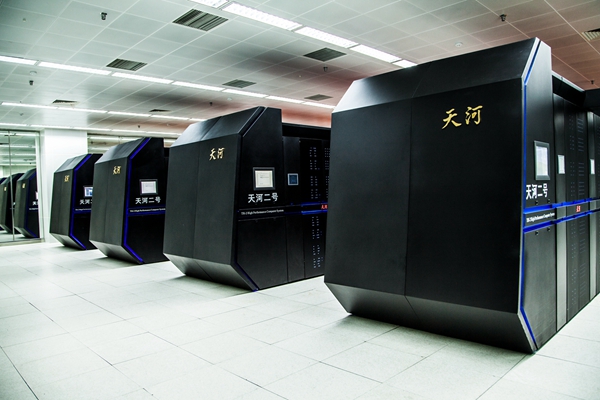Supercomputing star


Following the dream
Lu's center, which is operated and managed by the Guangzhou-based Sun Yat-sen University, plans to double or triple the Tianhe-2's capacity by next year and to upgrade the entire system in the five-year period after that.
Lu, who holds a doctorate from the National University of Defense Technology, is deputy chief designer for the Yinhe (Galaxy) supercomputers, as well as the Tianhe-1 and Tianhe-2.
"Everybody has a dream of becoming a scientist in childhood," says Lu, smiling. And she learned about the successful development of Yinhe-1, the country's first supercomputer, in 1983, when she was in high school. So, she applied to the university and started down the high-tech road.
She transferred to the National Supercomputer Center in Guangzhou in 2016 and improved its structure and management system. She is currently director of the China Computer Federation's committee for women's computing.
As for the low share of women in the science-and-technology workforce, she says: "I was barely aware of this issue before I joined the committee for women's computing. But I have been lucky. I didn't feel gender inequality in my teams, either in ability or effectiveness. Women took long night shifts, without resorting to cigarettes."
Female scientists excel in some particular ways, she says. While keeping in mind the full technological spectrum, they are better with details. And they communicate well, Lu says, adding that teamwork and coordination are crucial in large projects like supercomputing.
But women are even less present in the supercomputing field than in some other science sectors, such as biotech, she says, noting that there were more women at the international supercomputer conference this year than last.
"I tell myself and my students, including women, don't set limits on yourself. There is no substantial difference in the working ability between men and women," Lu says.
"Women are not doing some work as much as men for various reasons, but that doesn't mean they are not able to do it. As society and the economy develop, women are increasingly being freed from family chores. And they will accomplish more as they reach their full potential."
A number of the research achievements made with the aid of Tianhe-2 were published in international science journals, including Nature, Cell and Science.
And corporate clients of Tianhe-2 include automobile makers, shipbuilders, wind-power generators and home-appliance producers.




